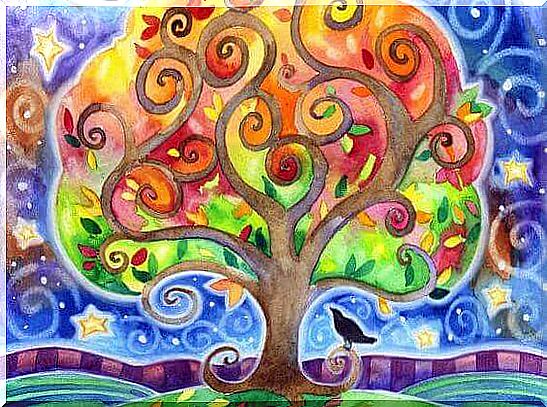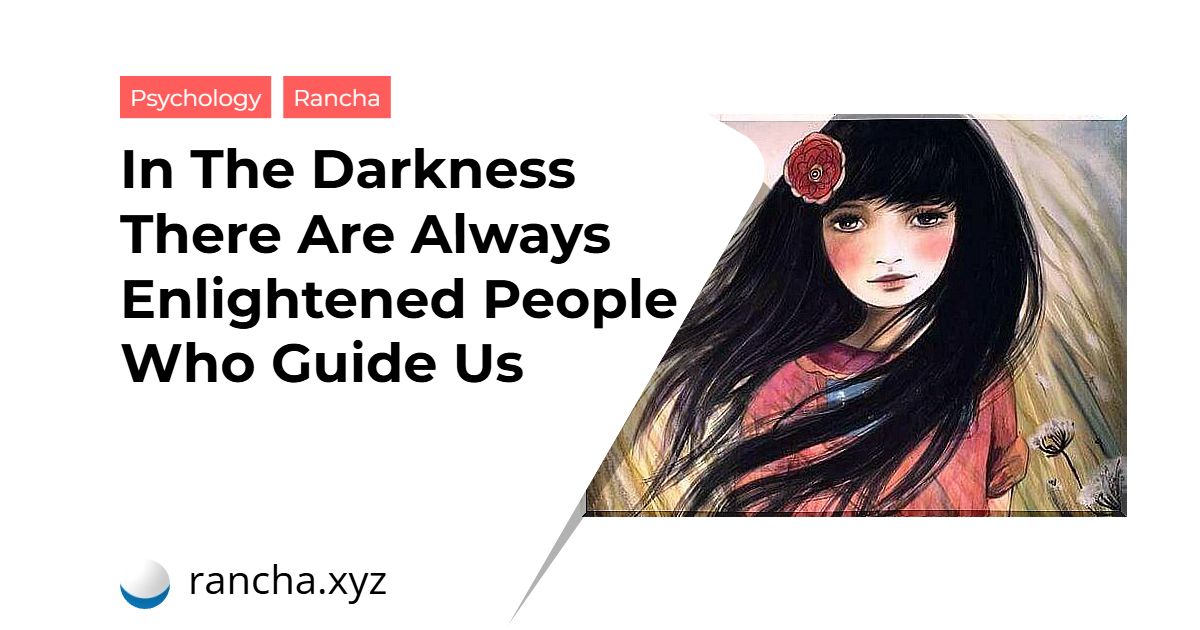In times of darkness, there are always enlightened people who guide us. They are like sunlight coming through a glass window to inspire us, to give us hope in those moments when we lose our bearings, our spirits, and the north of our vital compasses. They are medicine for the heart in times of adversity.
We have to admit: we all need someone who cares about us. We can love our independence, our proud self-sufficiency and even think that we ourselves carry the sun within us. However, when there is a storm outside, sooner or later the leaks of sadness appear, the infiltrations of fear, insomnia and that vital discomfit that only affectionate support, empathy and affection can alleviate.
But here’s a curious fact: the point of view of social psychology tells us that providing emotional support is an art that not everyone has mastered. As strange as it may seem, sometimes those who love us the most can give us a disproportionate kind of attention that can generate in us a feeling of dependency, inefficiency or weakness.
The most effective type of support is one that is always there, but in a subtle, engaging, and authentic way. We also talk about this type of help in which none of the members will feel that they are indebted to each other, because there are no “givers” and “recipients” of affection, there is a bond where there is a fluid, subtle and wonderful reciprocity .
We propose that you reflect on this topic that is so interesting and, at the same time, endowed with different nuances.

People who corrode and people who are enlightened
We all know what empathy is and how it impacts our everyday relationships. But we’re sure that on more than one occasion, when you’ve dealt with someone who’s incapable of connecting with others, someone with certain aggressive, hostile, and even destructive nuances, you often say that “this person lacks empathy”.
Simon Baron-Cohen, a professor at Cambridge University and an expert in the development of psychopathology, defines these psychological traits using a term worth remembering: “corrosive empathy.” According to him, this behavior arises when someone not only fails to “connect” with others, but also corrodes, undermines and fragments with persistent slowness those around them. They are profiles endowed, effectively, with a certain darkness.
At the opposite pole are undoubtedly the enlightened people. More than seeing them as personalities of great nobility and kindness, we can define them as men and women who “know how to be and let them be”, as facilitators of internal harmony, as emotional spinners who gather our torn pieces to remind us, more once, how beautiful and important we can be.

Psychological characteristics of enlightened people
We pointed out at the beginning that giving support is actually a kind of art that not everyone knows how to practice. For example, something that is worth remembering is that when the giver is clearly differentiated from the recipient, sometimes certain discomforts can arise. The recipient may feel like a “debtor” or become dependent on a donor who enjoys his role as a caregiver.
- Enlightened people, on the other hand, do not ever assume a caregiver role : they are facilitators.
- They know how to be without control, without judging and without exercising at any time a constant attention where the other person ends up developing a certain dependency. They are experts in generating true personal growth.
- They respect spaces, know how to be present when necessary and protect the intimacy of the other when he needs it.
- They are present but always subtle presences, with the unique ability to remind us who we are. They worry, bring positivity, encouragement and hope for us to tune in once more to the buzz of life, of optimism.
How to learn to give birth, how to provide authentic emotional support
Enlightened people guide us in times of difficulty, accompany us in moments of well-being and inspire us in everyday life. This is something we all know. But… would we be able to offer them support with a similar quality and authenticity?
Believe it or not, offering emotional support isn’t easy. Doing this requires a very deep self-knowledge, a good management of one’s emotions and a decentralization of this “I” to feel empathy in every way.

Keys to developing real support
Some people are able to affectively empathize with the other person, but they never develop cognitive empathy. It is not, therefore, just about “feeling” what the person in front of me is experiencing, I must understand that.
- In turn, it is necessary to develop an empathic precision. We talk about the ability to correctly infer the mental state in which the other person is. For this, it is necessary to know how to ask the correct questions, not to make judgments out loud and to listen carefully.
- Avoid heightening the other person’s anxiety with the classic expressions of “ this is nothing ” or “ could be worse ” .
- In addition, we also have to keep in mind that those who are really bad don’t want to hear the typical phrases of “ I’m here for what you need ” or “you can count on me ”. More than words, these people need real, tangible and visible facts.
Enlightened people are of few words but great deeds. They will be by your side before you ask and will be able to read your sorrows and sorrows in your eyes. To conclude, what we sometimes understand as support is actually not so much. Good support is not just about saying what is right, but also about doing what is appropriate through small acts of kindness and sincere interest.
Images courtesy of Claudia Tremblay and Amanda Cass
 rancha.xyz Be free to choose their own route to self-knowledge, health and balance of body and soul.
rancha.xyz Be free to choose their own route to self-knowledge, health and balance of body and soul.




